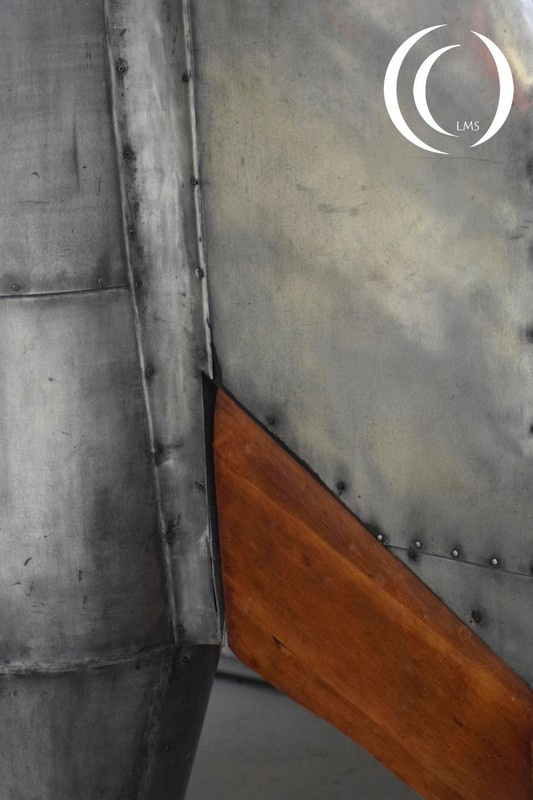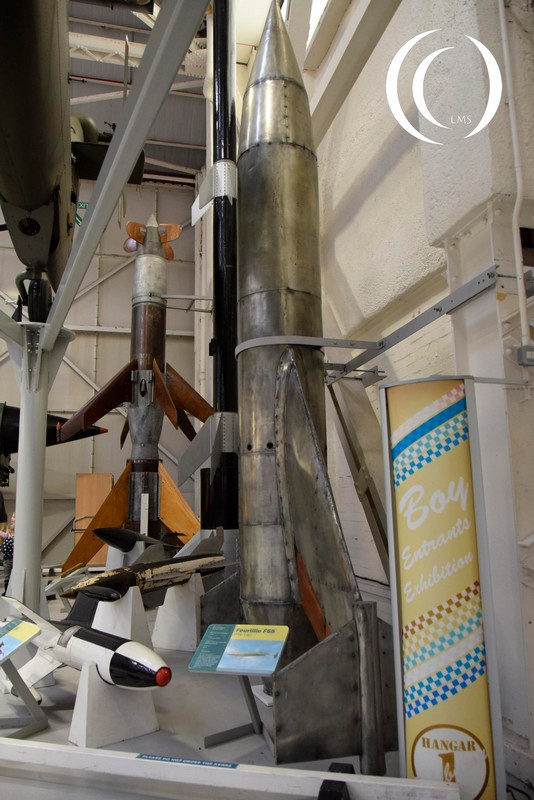Rheinmetal-Borsig developed a surface to Air Anti-Aircraft Missile in 1940 codenamed Feuerlilie (Fire Lily). They tested the rocket in two versions, the smaller Feuerlilie F25 was 25 centimeters in diameter and the bigger Feuerlilie F55 was 55 centimeters in diameter. Both missiles are propelled by Rheinmetall 109-505/515 solid rockets. Both versions were tested in the Raketenerprobungsstelle Rumbke (Rocket test center Rumbke) at the Baltic sea near Leba in today’s Poland.
Feuerlilie F55
While the Feuerlilie F25 was tested and further developed the much bigger F55 was built. The F25 was 1,89 meters long and the F55 was 4,80 meters long.
In April 1942 the First Feuerlilie F55 was finished. Its maiden test flight was on 12 May 1944, the Feuerlilie flew 7500 meters in 69 seconds. It was fired from an inclined carriage, in more developed stages a modified 88mm Flak gun undercarriage was used.
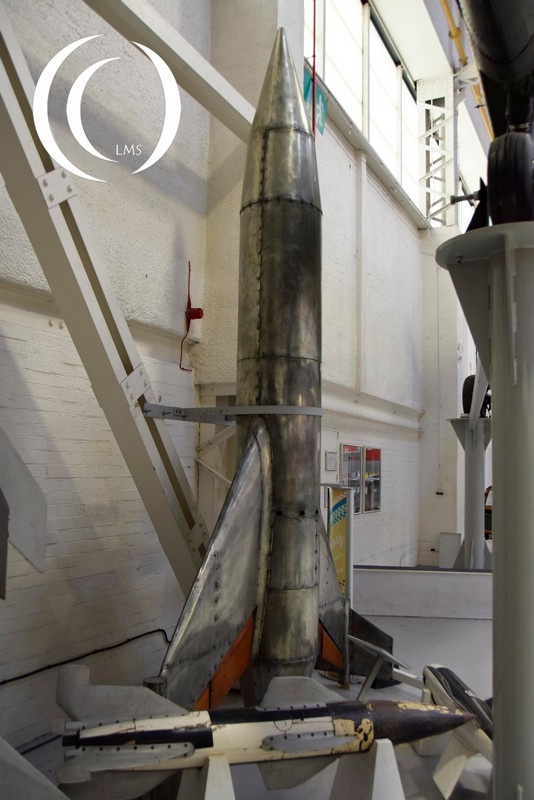
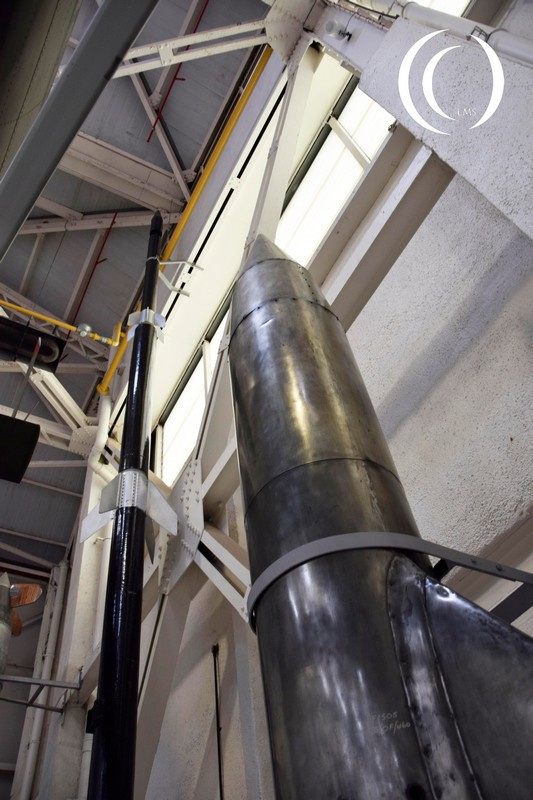

The Feuerlile F55 was a two stage remote controlled supersonic rocket. Although a lot of tests failed there is one launch where the rocket reached a speed of Mach 1.2 in 1944. The remote controle used in later tests was a drive from the Henschel Hs 293 Rocket. Due to the diviculty with stability and control the Feuerlile F55 project was stopped in January 1945. Although there were ideas on restarting the project in February / March of 1945 the project was never picked up again.
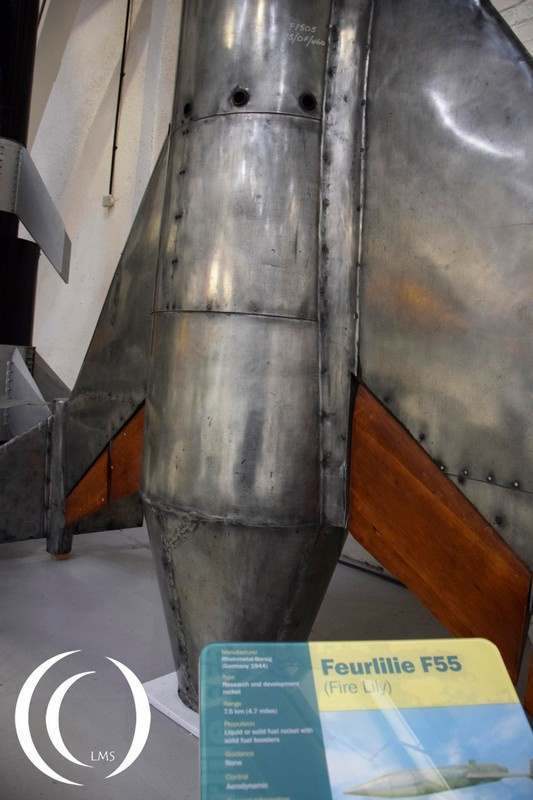
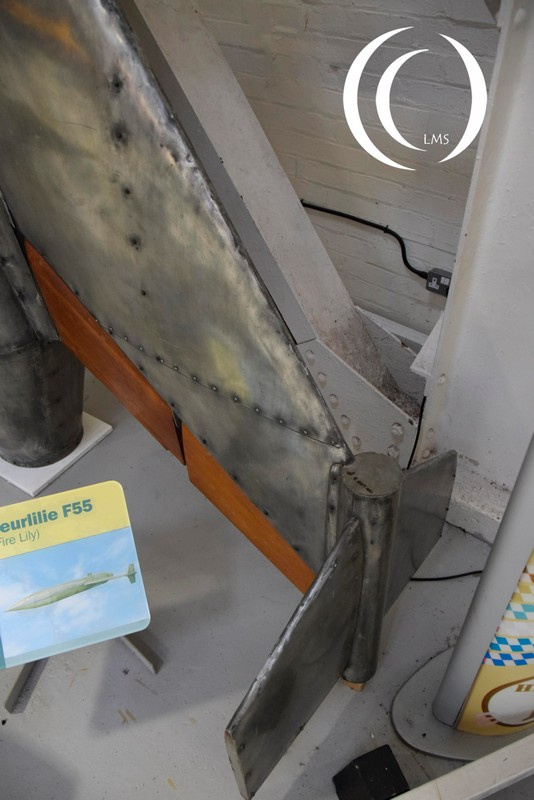
The Feuerlilie F55 was 4,80 meters long, had a diameter of 55 centimeters, a wingspan of 4,50 meters, weighed about 600 kilograms with 100 kilograms of explosives. It could reach a height of 10.000 meters and was built for a supersonic top speed of 1260 km/h.
Photographed at the RAF museum Cosford
